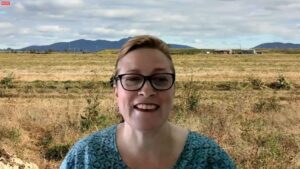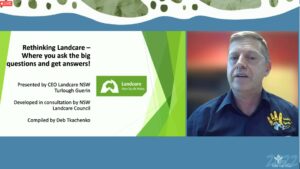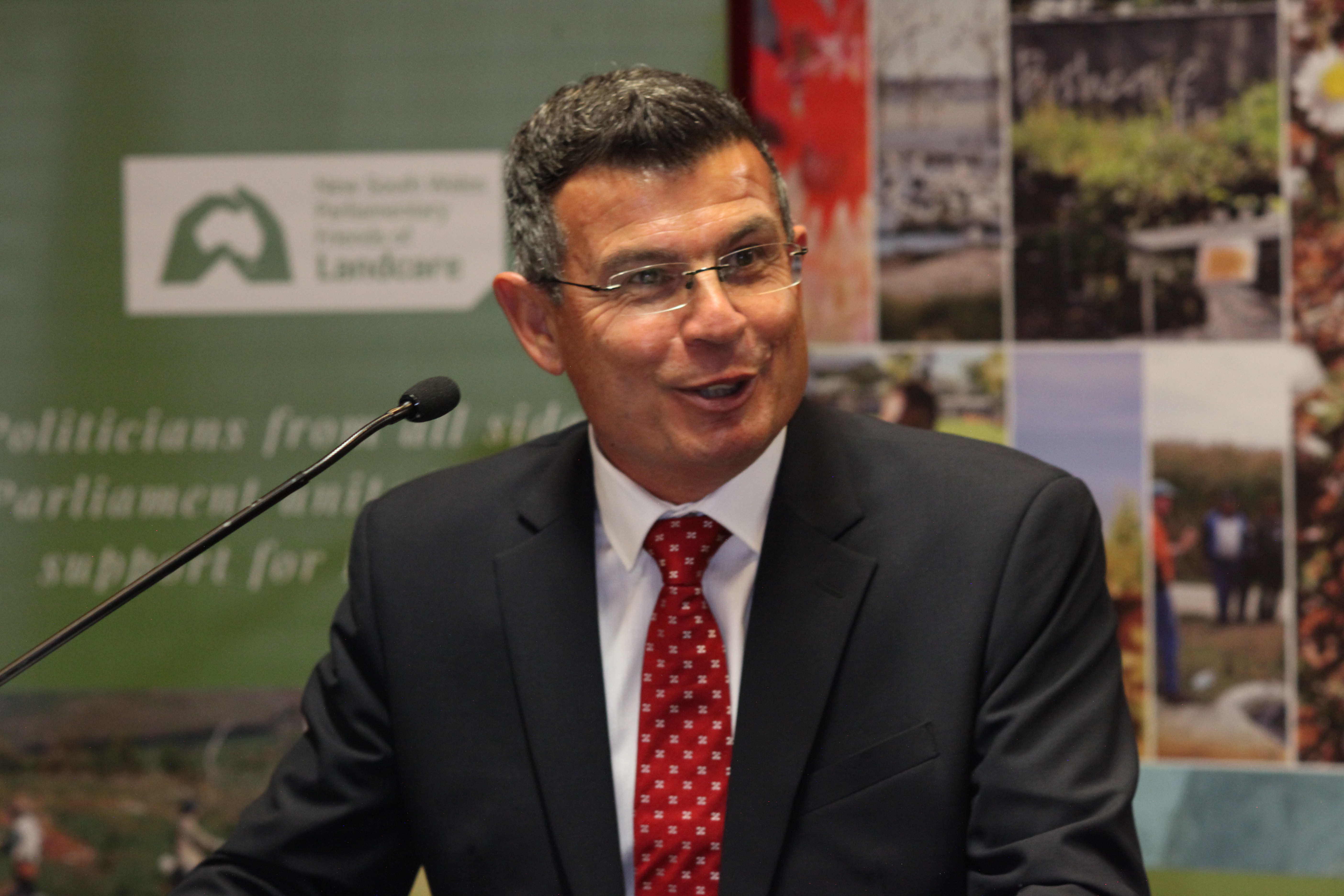The 2022 NSW Landcare and Local Land Services Conference was held on Thursday 17th March and for the first time it was an entirely online event due to the COVID-19 pandemic.
The existing three-day program was condensed into a single day of inspiring, informative and innovative presentations and discussions attended by over 250 attendees from across the state.
“Despite the challenges we have faced in the lead up to this conference, we were able to all come together. If we have learnt one thing in the last two years, it has been resilience and adaptability,” Landcare NSW Chair Ms Stephanie Cameron said.

“Landcare is needed now more than ever. It was so inspiring to see Landcarers from flood affected areas online and sharing their knowledge. Our thoughts and well wishes go out to those who have been and are still being impacted by the devastating floods.”
Hosted by War on Waste’s Craig Reucassal, the event was engaging from the very beginning with an incredible keynote address from Dr Chadden Hunter, producer of the wildlife series Planet Earth.
The day featured concurrent sessions around the theme of the conference: Rethink – Engaging Community; Recharge – Regenerative Agriculture/Land Management; Renew – Biodiversity/Regeneration.
The conference concluded with Landcare NSW CEO Turlough Guerin and NSW Landcare Program Assistant Manager Deb Tkachenko asking the big questions of the over 250 delegates online with their interactive presentation, ‘Rethinking Landcare – Ask the big questions and get answers’.

“Thank you to everyone who presented at the conference and shared their knowledge, learnings and insights,” said Ms Cameron.
The conference was followed by a free, online awards ceremony for the prestigious 2021 NSW Landcare Awards where the winners for each of the eight Landcare Award categories were announced.
Acting Local Land Services Board Chair, Allison Harker said, “The quality of the nominations from all across the state were outstanding and after an extensive judging process we have been able to pick our finalists and ultimately the Grand Champions for the eight award categories.”
“The nominees should be proud of their achievements, particularly in the wake of cumulative natural disasters and tough seasonal conditions.
“These nominees have shown tremendous resilience in the face of adversity and these awards are an excellent opportunity for us to say thank you to them and the wider Landcare community,” said Ms Harker.
For a full list of finalists and award winners for the 2021 NSW Landcare awards visit, www.nswlandcareconference.com.au
Grand champions of the NSW National Award categories will now go on to represent the whole NSW Landcare Community at the 2022 National Landcare Awards in Sydney.
 While Australia grapples with the COVID-19 pandemic which poses an acute threat to our wellbeing and way of life, climate change and its many manifestations remains a serious and chronic threat to life as we know it.
While Australia grapples with the COVID-19 pandemic which poses an acute threat to our wellbeing and way of life, climate change and its many manifestations remains a serious and chronic threat to life as we know it.